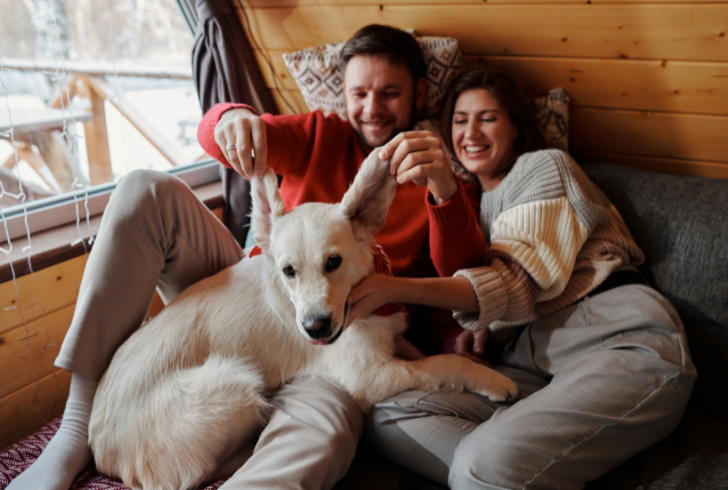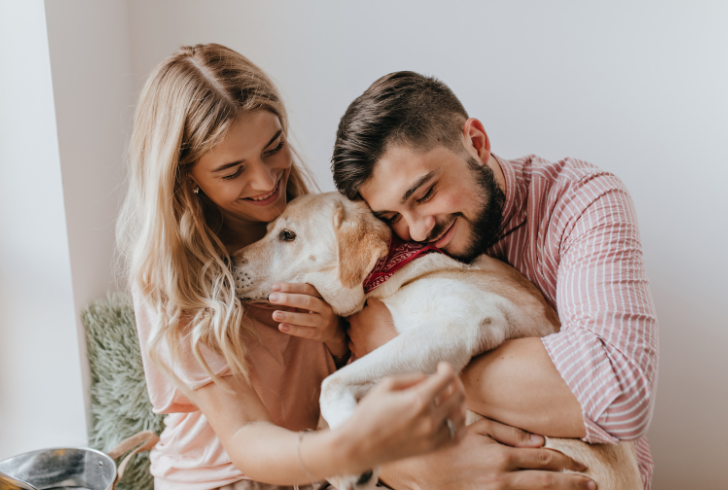There’s a quiet truth playing out in homes everywhere—pets aren’t just lovable companions; they subtly influence how people treat each other. The gentle way someone reaches down to scratch behind their dog’s ears or coos at their cat after a long day says more about connection and emotional presence than it gets credit for. It turns out that same softness could be the very thing missing in a struggling relationship.
Roughly two-thirds of married adults in the U.S. share their lives with pets. And while many couples argue over daily stresses or responsibilities, something shifts when pets come up. Tension eases. Eyes soften. There’s mutual agreement that the dog is adorable or that the cat knows exactly when to curl up and offer comfort. Pets bring out a side of people that feels more genuine—less guarded—and that’s not accidental.
There’s something about how people interact with animals that makes them give without expecting much in return. That kind of giving builds trust. It also creates a space where affection is freely expressed, even after a mess or a mistake. The dog chews the shoe, the cat shreds the curtains—but love still flows. No silent treatments, no grudges.

Pexels | Boris Pavlikovsky | Among U.S. married adults, two-thirds who own pets find that they soften daily tensions.
The same can’t always be said about human relationships. But maybe that’s where the comparison becomes useful.
One key difference lies in greetings. Pets are usually met with smiles, energy, and warmth—regardless of the mood or how the day went. A partner might only get a glance. That first interaction can set the tone. Offering a real hello, a hug, or even a smile—just like with a pet—can shift the energy between two people.
Then there’s expectation. People rarely expect their pets to be upset about a late arrival or a missed walk. They don’t assume their pet is harboring resentment or keeping score. But with partners, small infractions often build into assumptions, and assumptions into walls.
Holding onto frustrations doesn’t happen much with pets. They mess up, and the annoyance fades. Yet in relationships, mistakes sometimes linger longer than they should. Learning to let things go—like one might after finding chewed mail or tipped-over water bowls—could lead to more ease and less tension.
Acceptance plays another big role. Pets are rarely expected to be perfect. Their quirks—whether barking too much or being terrified of thunder—are just part of who they are. Partners, though, often get judged or pressured to change. Embracing people the way pet owners accept their animals can create a much safer emotional space.
What pets seem to understand—and invite in return—is a type of trust that doesn’t constantly test the limits. There’s an assumption of safety, of staying, of not being left when things go wrong. That assumption is powerful. In many relationships, insecurity slowly erodes connection. When both people feel emotionally secure, the bond deepens naturally.

Freepik | lookstudio | Love grows stronger when couples share the warmth they give their pets.
Some relationships might benefit just from noticing how affection is offered to a pet—playfully, without fear of rejection, and in a tone that invites closeness. Bringing even a little of that energy into human connections can shift dynamics without much effort.
Even small changes matter. Saying “hi” with more presence. Dropping the urge to hold a grudge. Laughing at the weird things that make a person unique. It’s not about treating partners like pets—but about recognizing what’s already working, and where that kind of care shows up easily.
Relationships don’t need grand gestures to grow stronger. Sometimes, the way someone talks to the family dog says everything about the kind of love they’re capable of giving. Noticing that—and translating it—can quietly change everything.
